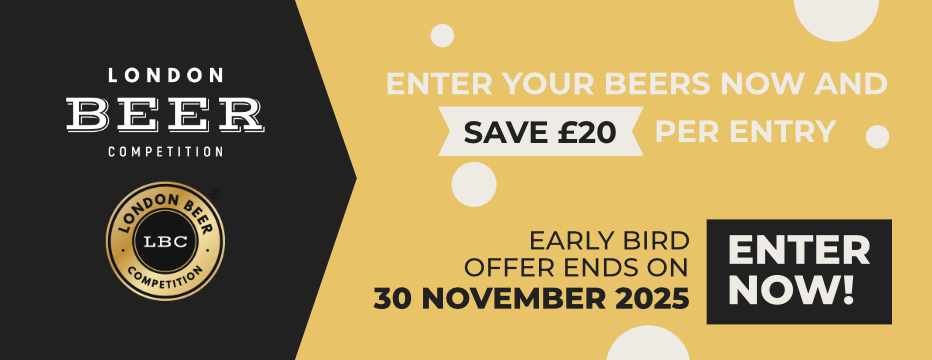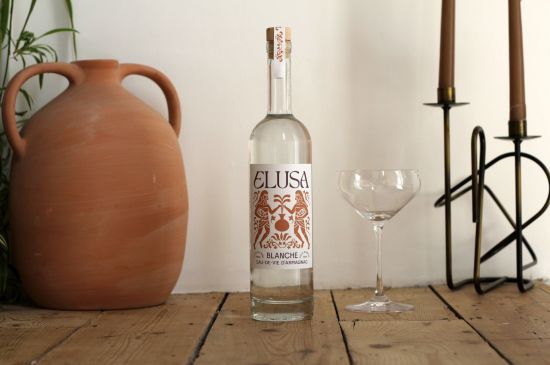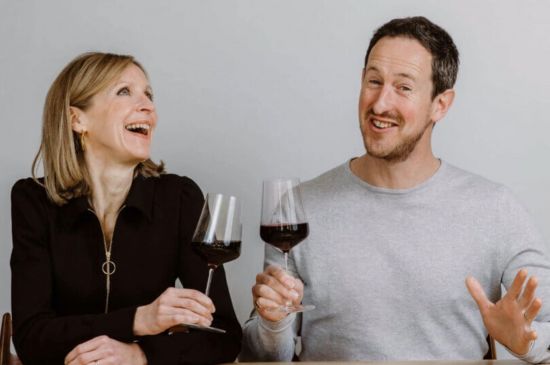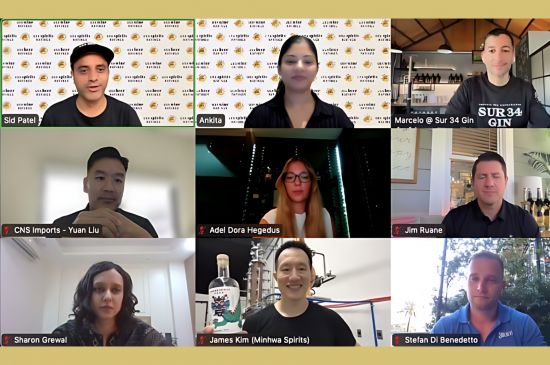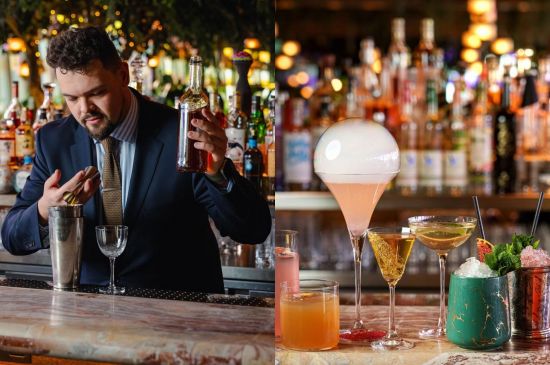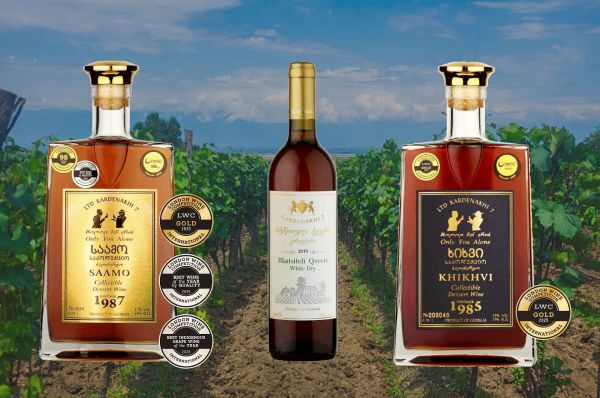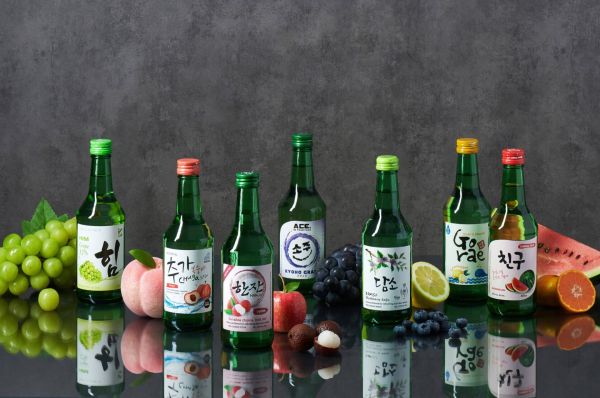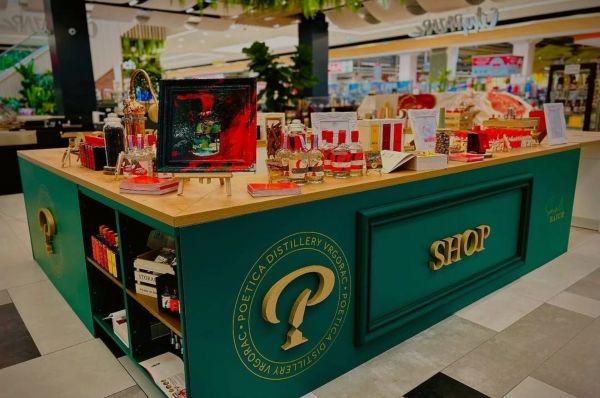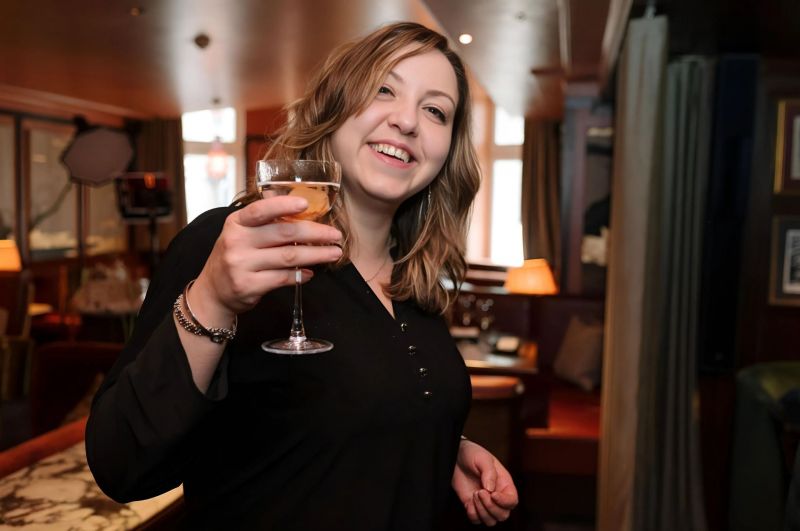
01/10/2024 We chat with Claudia Carrozzi about her journey and her historic appointment as the first female president of the UK Bartenders Guild (UKBG), a significant accomplishment.
Claudia’s appointment as the first female president of the UK Bartenders Guild (UKBG) is a remarkable achievement in an industry traditionally dominated by men. Having been introduced to the professional bartending world through the UKBG, Claudia has experienced firsthand the opportunities and challenges the guild presents. Claudia is also a London Spirits Competition judge.
Now, she is poised to lead the organization with a vision centered on giving back to the community that shaped her. From elevating member benefits to fostering a more inclusive and diverse bartending landscape, Claudia’s leadership promises to blend her deep-rooted passion for the craft with a commitment to positive change.
“It’s truly an honor to serve as the first female president of this historic organization. The guild has provided me with invaluable experiences, and I am committed to giving back to the community that has shaped me.” - Claudia Carrozzi
Here’s her journey and our interview with her.
Can you tell us about your journey into bartending? What inspired you to become a bartender?
I started working at a young age, 15, for a summer job. My main responsibilities were making coffee and bar backing. The following year, I moved to the evening shift, where I served tables and occasionally prepared soft drinks. While completing my hospitality studies, I joined Relais & Châteaux luxury hotels, where I was introduced to professional bartending. It was there that I mixed my first martini. After finishing my studies, I decided to move to the UK to work as a bartender and improve my English. I quickly realized that my experience and language skills were limited, so I had to start from the bottom again. I worked as a housekeeper during the day and as a bar back in the evening. After improving, I moved to a cocktail bar, then to nightclubs, hotel bars, and restaurant bars, and even briefly worked in a pub. I took a break from the bar industry and worked in restaurants, starting as a waitress and eventually becoming a 2nd maitre d'hotel.
I then returned to bartending, worked in hotels for a while, and then moved to events, working across the UK while freelancing. With professional education and mentors, I advanced through bar management and eventually became a bar educator. I taught in bar schools for a while and then became a beverage specialist for Cunard. There, I launched the White Star Service Bar Academy, revamped the product, and elevated the service standards. Currently, I head the beverage development for Cunard, managing 70 bars ranging from nightclubs and pubs to luxury premium cocktail bars and destination bars. In addition to my professional career, I have been a member of the UK Bartenders' Guild (UKBG) since I moved to the UK and have risen through the ranks to my current position as head of the organization where I am currently working on a relaunch and revamp with a fantastic team that shares the same views and values as me.
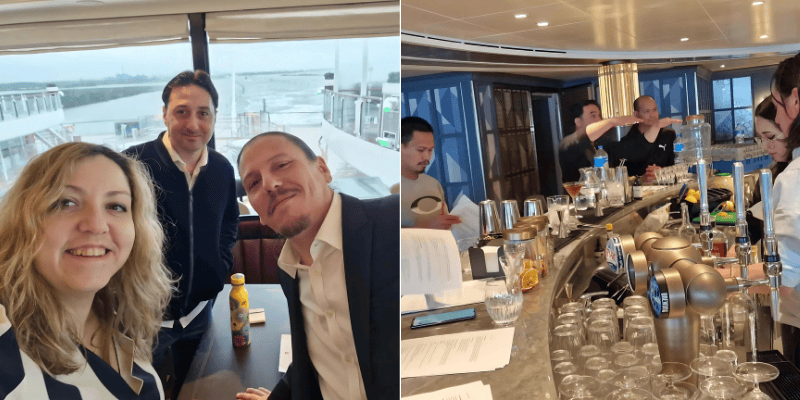
Image: Claudia Carrozzi celebrating the successful delivery of their latest project with Cunard: the launch of the Queen Anne ship; Source: Linkedin
What training or education did you receive to become a professional bartender?
I completed my studies in hotel management, but my journey to becoming a professional bartender has been greatly influenced by my work experiences, both positive and negative, the guidance of my mentors, the collaboration with my colleagues, and the professional training I have received. One of the most valuable training programs I underwent was through the WSET, where I obtained a level 2 certification in wines, a level 3 certification in spirits, and became a Level 2 spirits educator. In addition, I underwent professional bartending training with AIBES, the Italian Bartenders Association. As I progressed in my career, I realized the importance of continually expanding my knowledge, which led me to delve into topics such as cost control, excel skills, project management, team leadership, and more. Even though these skills were not part of my formal training, they have proven to be invaluable in my career.
What do you look for when you plan to buy new products for your business?
When I plan to buy new products for my business, there are several factors I consider. I look for quality, and I consider important the relationship with producers and suppliers, cost, and availability in the market. Most importantly, I ensure the product fits with the concept and whether there is a need for it. I also consider if I have space on the shelves or if I need to delist something else to make room. Additionally, I assess if the numbers add up and if the staff will receive appropriate training. I always aim to avoid adding new items that will just collect dust on the shelves rather than generate profit.
How do you stay updated with the latest trends and techniques in mixology?
I watch what bartenders are doing in their bars, attend trade shows, takeovers, seminars, and cocktail competitions, and read blogs, news, and books. I am genuinely passionate and curious, and I am inspired by all the like-minded people in the trade.

Image: Claudia Carozzi at NCC 2021 Maritime Heat.
Can you describe your process for creating a new cocktail? What inspires your creations?
When creating a new cocktail, I find inspiration in everything around me. Typically, I start with a high-level brief related to the concept or purpose of the drink. Then, I consider the flavor profile, drink structure, and cost. Once I have the basics figured out, I experiment with the chosen ingredients or whatever is available. If my initial idea doesn't work, I do further research. Ultimately, the process involves a mix of knowledge, logic, and creativity, allowing me to sometimes break the rules found in cocktail books.
What are some current trends in the UK drinks industry that you find exciting?
Consumers are more aware of what they are drinking and are looking for quality. They are increasingly seeking drinks that offer health benefits beyond hydration. I appreciate the idea of spending more on better drinks and drinking less. There is a growing trend of creating low or no-alcohol drinks that are still delicious. I have a passion for artisanal and local produce, and I'm excited about the high-quality artisanal products available. Specialty coffee and craft beer are also fascinating areas that I have recently been exploring more than usual.
How has the cocktail scene in the UK evolved over the past few years?
The landscape of the alcohol industry has evolved significantly in recent years. We have transitioned from a modern obsession with gin to a greater emphasis on quality products and beverages. This shift represents a significant milestone for me, as I admire bartenders who put their own spin on classic drinks and explore new boundaries. Currently, there is a noticeable decrease in gin's popularity, with rum, Mezcal, and tequila gaining prominence. The preferences of consumers have also changed, with an increased appreciation for products such as amaro and bitters, along with a growing market for healthier cocktail options, non-alcoholic beverages, kombuchas, and CBD-based cocktails. Additionally, the market has seen notable growth in improved ready-to-serve (RTS) products, artisanal offerings, and specialty coffees, and I believe these trends will continue to flourish.
How do you handle difficult or unruly customers?
Even though I no longer work behind the bar and am primarily based in the head office or sailing around the world, I still encounter difficult people from time to time. I find that taking a moment to count to 10, breathing, and formulating a diplomatic response before letting my emotions take over usually works. Sometimes, it's helpful to take the person to a more isolated area to let them vent before approaching them with a diplomatic way of calming down and working on a solution together. What I find very important is the art of listening; having good empathy usually helps in solving the situation.
[[relatedPurchasesItems-63]]
How does sustainability influence your work behind the bar? Are there any eco-friendly practices you implement?
Even though I no longer work shifts at the bar, every decision I make and every product I implement will impact the work of our bartenders. I prioritize sustainability by sourcing products carefully and ensuring that our producers and suppliers follow good working practices. We have a strict sustainable program and have significantly reduced the use of single-use items in our bars, with the goal of further minimizing their use. The products and garnishes chosen for the cocktails also go through a thoughtful selection process. I believe in integrating sustainability into both work and life practices by minimizing carbon footprints, maximizing recycling efforts, and avoiding unnecessary waste. It's important to consider sustainability in every step of the process, at home and at work.
Any good customer story that you recall that comes to mind?
I have always enjoyed working behind the bar. I loved the days when I had fun while bartending for customers and coming up with a drink based on their taste buds. I have dedicated many drinks to my guests, given them recipes, and regrettably never wrote them down in my notebook. As a result, I have lost countless good recipes, each one holding a story related to a particular moment with a guest and the information or gossip I gathered at that time. I miss those days. Nowadays, my main "customer" is the team that works with me or is somehow involved in the process. It's important for me to provide them with support and inspiration. Each occasion where the guest and our staff are happy, the staff knowledge and passion are constantly growing is a good customer story for me.
How do you see the role of bartenders evolving in the next five years?
The role of bartenders has undergone significant evolution and will continue to adapt to changing trends and societal shifts. I believe that awareness of sustainability, health, wellness, and creativity will thrive. The community involvement and advocacy will continue to grow. Bartenders will continue to actively engage in social causes, support local communities, and advocate for industry rights as well as collaborate with other professionals and participate in events beyond the bar.
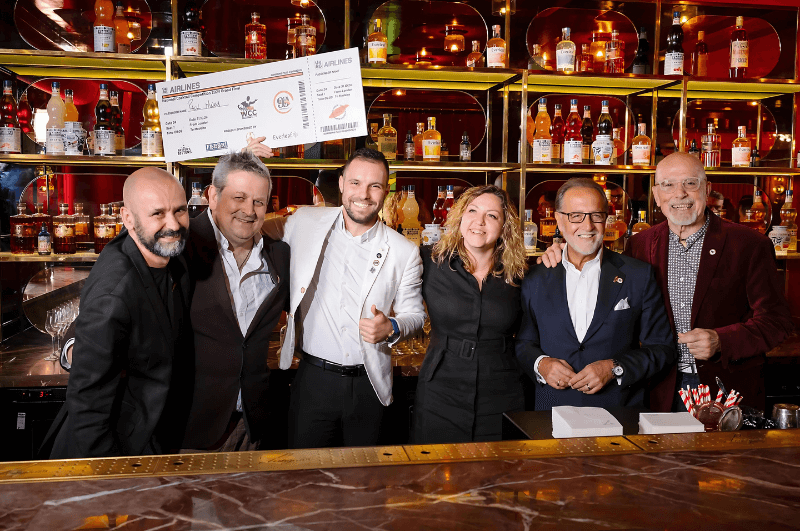
Image: UKBG National Cocktail Competition 2024.
If you could only use five ingredients behind the bar, what would they be and why?
I would choose ice, lime, sugar, water, and a good bottle of rum to make a proper daiquiri and keep hydrated so we can drink more of it.
What advice would you give to someone looking to start a career in bartending?
Education and experience are crucial in bartending. Attending a bar school isn't enough to become a good bartender. A skilled bartender understands all aspects of the job, having mastered them over their career. It's important to practice, inspire, celebrate success, and learn from mistakes. Stay humble and remember that there's always more to learn. It won't be easy, but enjoy the journey and never give up on your dreams!
Also Read:
Meet Matteo Torresin, The Dorchester Hotel‘s Bartender in London
TAGS:
 The On Trade
The On Trade 

